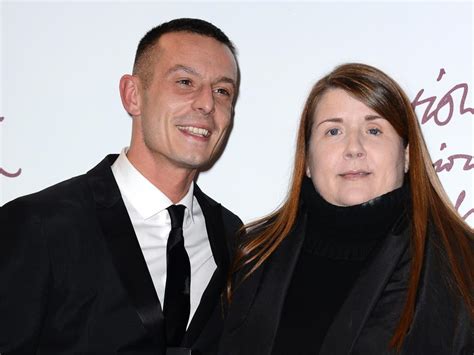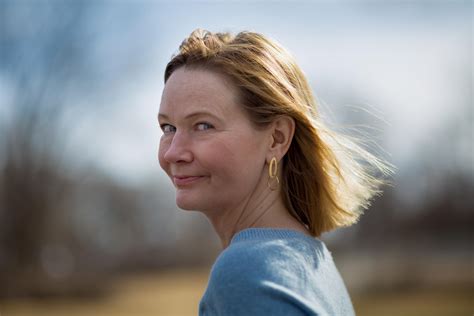A Quote by Malcolm Gladwell
When I see someone who reads something of mine and draws something out of it that's very different from my perspective, I think that's actually cool. Sometimes it's worrisome when you feel they badly misinterpret it, but it just says that they're thinking, and they're bringing their own interpretation to bear on it. [...] That's part of the wonderful thing about putting words into the world, and if I was worried about that, I couldn't be a writer.
Related Quotes
This is something I think that blues music, or folk music, and all those particular genres that have a perspective about life deal with - where the difficulties of life are seen as something that are very natural and nothing to be embarrassed about, and something that we all go through; something that's part of our share of humanity. And it accepts those difficulties and pain as such. I think there's a wonderful forgiveness that can come over you, if you have that perspective on it.
I don't think bands should feel compelled to speak out unless they actually have something to say. I think that's a big mistake, where you're turning into a coyote running off the edge of a cliff. Too often, people just feel like something is happening and they want to be part of this thing, and it's just, there's sort of a "me too!" and that's about it.
The whole point about vision is that it's very individual, it's very personal, and it has to be confessional. It has to be something which hurts - the pulling out of it and putting it on the page hurts. Art can be about the individual writer's response to his or her condition, and if that response comes out of a predigested belief about what the audience wants to hear about the writer's condition, then it has no truth, it has no validity. You either write with your own blood or nobody's. Otherwise it's just ink.
Students may feel the criticism is harsh, but I think it's possible they haven't had criticism before. It's my job to point out when something is badly done, or when there's no point of view. To build a brand you have to have something about you. If not personality, then some thought process. I'm 40, and they're young, so they're meant to be informing me. They should be bringing me a book or something that I haven't seen, not like some obscure chant book by Dominican monks, but an image of the way they see the world.
That is the great thing about policing, you do have a lot of responsibility very early and you have got to make decisions, sometimes life and death decisions, very quickly and there is something about putting a uniform on and thinking 'people are looking to me to make decisions and to look after them' that makes you feel capable.
There's something about us using the word fascism and thinking about, "What is it? What does it mean, and what are the tenets of it?" I've been thinking a lot about folks denying what has happened in history, or just not acknowledging it. I think there's something that's fascist, and something that I think we could probably learn from, in terms of the energy in the world right now.
Sometimes I do feel exposed. I have this kind of theory about different channels or levels of relaying experience - when I tell someone, one on one, in a personal context, about something that's happened to me - that has a very different valence, a different charge, than when/if I've said it in a public forum.
I know that sometimes when you are really worried about something, it ends up not being nearly as bad as you think it will be, and you get to be relieved that you were just being silly, worrying so much over nothing. But sometimes it is just the opposite. It can happen that whatever you are worried about will be even worse than you could have possibly imagined, and you find that you were right to be worried, and even that, maybe, you weren't worried enough.
If the NBA is worried about the NBA, if the NCAA is worried about the NCAA, if each individual institution is just worried about themselves, and the last thing we think about is these kids, then we're going to make wrong decisions. There are a lot of players of different levels, of different abilities. Let's be fair with them.



































